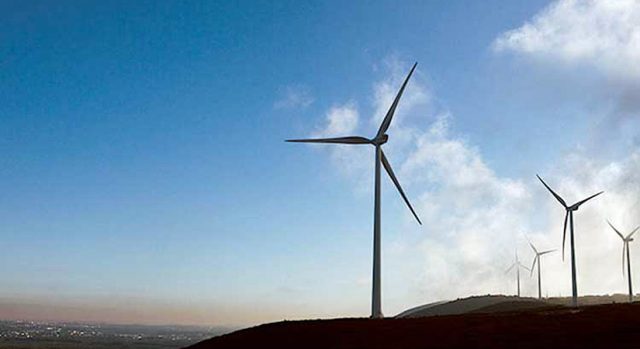
NORWAY’s ambassador said the Philippines is a potential destination for Norwegian businesses, but their interest in renewable projects here will depend on the industry’s openness to foreign investment.
“In the coming years, Norwegian businesses are planning huge investments in offshore wind and floating solar, and consider the Philippines to be a promising market,” Ambassador Bjorn Jahnsen told BusinessWorld in an e-mail. “However, the Philippines is competing with Europe and other countries in the region, where the push towards renewable energy sources is greater than ever.”
“The Philippines therefore has to put the right policies in place and should let foreign investors own more than 50% of equity in renewable energy projects to unleash the full potential for green energy production and the creation of good-paying Filipino jobs,” he added.
The 1987 Constitution prescribes 60-40% ownership in favor of Filipinos for most renewable energy (RE) projects, excluding biomass and geothermal.
The Department of Energy has also expressed its support for 100% foreign ownership of renewable energy projects to facilitate the shift to indigenous sources of power, making it less vulnerable to disruptions in the supply of imported fuels.
“Norway supports the Philippines’ efforts to increase the production of renewable energy, not only because this will reduce the emission of climate gases, but also because in the long run this may lower the price of electricity,” Mr. Jahnsen said.
Norwegian companies are currently involved in Philippine hydropower and liquefied natural gas projects.
Other foreign embassies have also expressed interest in investing in the Philippines’ renewable energy industry, including South Korea and the United Arab Emirates, and are awaiting news on the possible removal of the 40% foreign ownership cap.
Senator Rafael T. Tulfo, who chairs the Senate Energy Committee, told BusinessWorld in a Viber message that he supports more foreign ownership in renewable energy as “we are in desperate need of locally sourced power that will not be subject to the mercy of international issues and events, like the war in Ukraine and Russia.”
The Philippines, he added, currently does not have the capital to invest in renewable energy infrastructure and availing of more foreign loans is not the best option.
“Overall, we really have to open our doors to foreign renewable energy players in order to secure our energy resources,” he added. “This, of course, will be subject to limitations and regulations that will protect our country’s economic interests.”
Mr. Tulfo also said renewable energy can expand its share of the energy mix with the development of technology that makes it more reliable.
“There are…battery systems that allow renewable energy generation plants to store excess power and utilize it when needed,” he said. “Utilizing this technology would lead to a situation where there wouldn’t be any significant disadvantages to increasing renewable energy in our energy mix.”
The senator also cited plans to ease the process of attracting private-public partnerships to the sector.
For now, the country should prioritize hydro, solar, and wind energy sources as they have become more developed, safe and reliable throughout the years, he added.
Senator Ana Theresia N. Hontiveros-Baraquel said the “exploration and exploitation” of foreign entities should not be allowed.
“What the country needs today is a decisive shift to 100% renewable energy, not 100% ownership of our renewable energy resources,” she told BusinessWorld via Viber. “Renewable energy resources from nature rightfully belong to the state and their host communities,” she added.
The country should instead prioritize proper regulation over further liberalization, she added. The development of renewable energy should lead to more decentralized and community-based power systems using technologies like microgrid.
“To support these initiatives, the country must be very active in the climate negotiations demanding that rich polluter countries honor their commitments and contribute more in the renewable energy development of the most vulnerable countries like the Philippines,” she said.
“The push for renewable energy must be more determined today in order to achieve the 35% target for 2030,” she added, referring to the Philippine Energy Plan 2018-2040 which seeks a higher share for green energy in the power mix by 2030.
The current energy mix is 37.1% coal, 34.6% oil, 16.5% solar and wind energy, 5.5% natural gas, 4.5% hydropower, and 1.8% geothermal. — Alyssa Nicole O. Tan
For all the latest Business News Click Here
For the latest news and updates, follow us on Google News.
